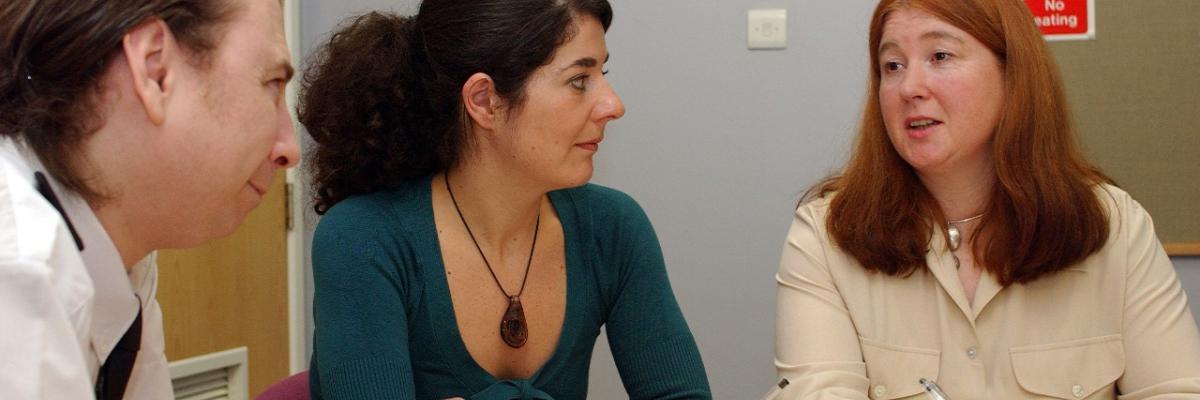Introduction
Residential care homes provide safe and supportive environments for children and adolescents who are unable to remain with their families or carers. Those who care for young people who have experienced significant traumatic events are keenly aware of the demands and complexity of this work. Practitioners spend many hours working in the life space of the children and young people they care for, which brings unique demands. These demands frequently involve dynamic practice situations that often invite challenge. Although some situations are clearly a cause for concern, there are many that fall into a grey area where it may not be immediately apparent that there is an issue at all. Whether obvious or not, the nature of working in the life space means practitioners are frequently faced with unfolding practice situations where the correct course of action isn’t immediately clear – some may feel unable to do anything about what’s happening in that moment.
Practitioner interactions in residential care homes
Residential practitioners usually work in small shift teams and essentially have two main categories of tasks: technical–rational tasks (checking medication, updating the communications log etc); and practical–moral tasks (responding to morally challenging videos/film/music being played in a communal space, use of humour that pushes boundaries etc). Practitioners may know each other well or not at all, and each will bring their own values to their interactions with the young people and their colleagues. Problems can arise when a practitioner or young person does something that causes others to feel uneasy. Is that song allowed because of its lyrical content? Should the hygiene of a young person be discussed in a communal space in front of others? What happens if a practitioner speaks negatively about a young person during a shift changeover? In such situations, how practitioners challenge each other’s practice can go a long way towards strengthening or damaging working relationships.
Issues when challenging others
The problems and variables around challenging practice can be complex. Many practice situations that occur in residential homes are dynamic and involve young people and staff. Long established teams may have a sense of loyalty to each other – new faces that question existing practices are sometimes ignored. A house culture can develop where new staff are pressured into practices they don’t agree with, but feel unable to challenge because they are still finding their feet. New practitioners often model their practice on those they deem experienced or more senior to them. What if they have issues with their practice? Will new staff recognise it, feel comfortable challenging it, or will they incorporate bad habits into their way of working? Some practitioners may find it difficult to say something for fear of ‘undermining’ a colleague on the floor.
Experience plays a key part, as does the house culture, which is usually driven by the service manager. What if there are flaws in their way of working? Do inexperienced practitioners feel able to question those in positions of authority? All new staff must undergo induction training, but does this prepare them for these complex, morally ambiguous practice situations? Most induction programmes cover policies and procedures, but do they encourage practitioners to raise questions about each other’s practice? The fear of making a mistake or 'getting into trouble' can be other inhibitors. This is where the importance of house cultures come into play.
Implications for practice
A theme emerges when we look back through inquiry reports and their recommendations. Skinner (1992), Kent (1997) and Frizzell (2009) all speak about the need for house cultures where staff can feel confident to raise questions about each other’s practice, without fear of censure. They acknowledge the difficulty of situations that ‘raise a prickle of concern’. These can be harder to challenge effectively because each practitioner has different reactions to similar practice situations involving staff and young people. With persistent high turnover and lack of a clear professional qualification that accurately reflects the work, residential care home teams are often comprised of people who don’t know each other well, but are still expected to challenge practice effectively – and in a way that doesn’t damage working relationships. The idea that practice should be supportively challenged appears to be tacitly used by some practitioners, but not by others.
Why is this the case, and what can be done to improve this situation?
An examination of recent studies into children’s homes and training programmes for residential care staff (Walton, 2009; White and colleagues, 2015), suggests that those with expertise in residential child care are not always involved in the development of training programmes or in major studies of them. This might explain the same issues being identified in inquiry reports over the years. If we are to create cultures where mistakes are seen as learning opportunities and practitioners feel comfortable raising questions of each other’s practice, then in the short term we need to develop training programmes that accurately reflect this complex working environment. In the longer term, we will need to address the long standing issues of a professional qualification – that's if we are to retain staff and develop teams that can effectively work together for longer.
Further reading
Frizzell E (2009) Independent inquiry into abuse at Kerelaw residential school and secure unit. Scottish Government
Kent R (1997) Children’s safeguards review. The Stationary Office
Skinner A (1992) Another kind of home: a review of residential child care. The Stationary Office
Walton J (2009) Promoting good quality care through teamwork and effective leadership: a guide to practice development. National Centre for Excellence in Residential Child Care
White C, Gibb J, Graham B et al (2015) Training and developing staff in children’s homes: research report January 2015. Department for Education
About the author
Ben O’Farrell is an Irish national living in Scotland since 2003. He has been working in social care throughout this period of time in a variety of roles, and will begin a PhD programme at Strathclyde University this autumn to continue his research into residential child care practitioner interactions.


